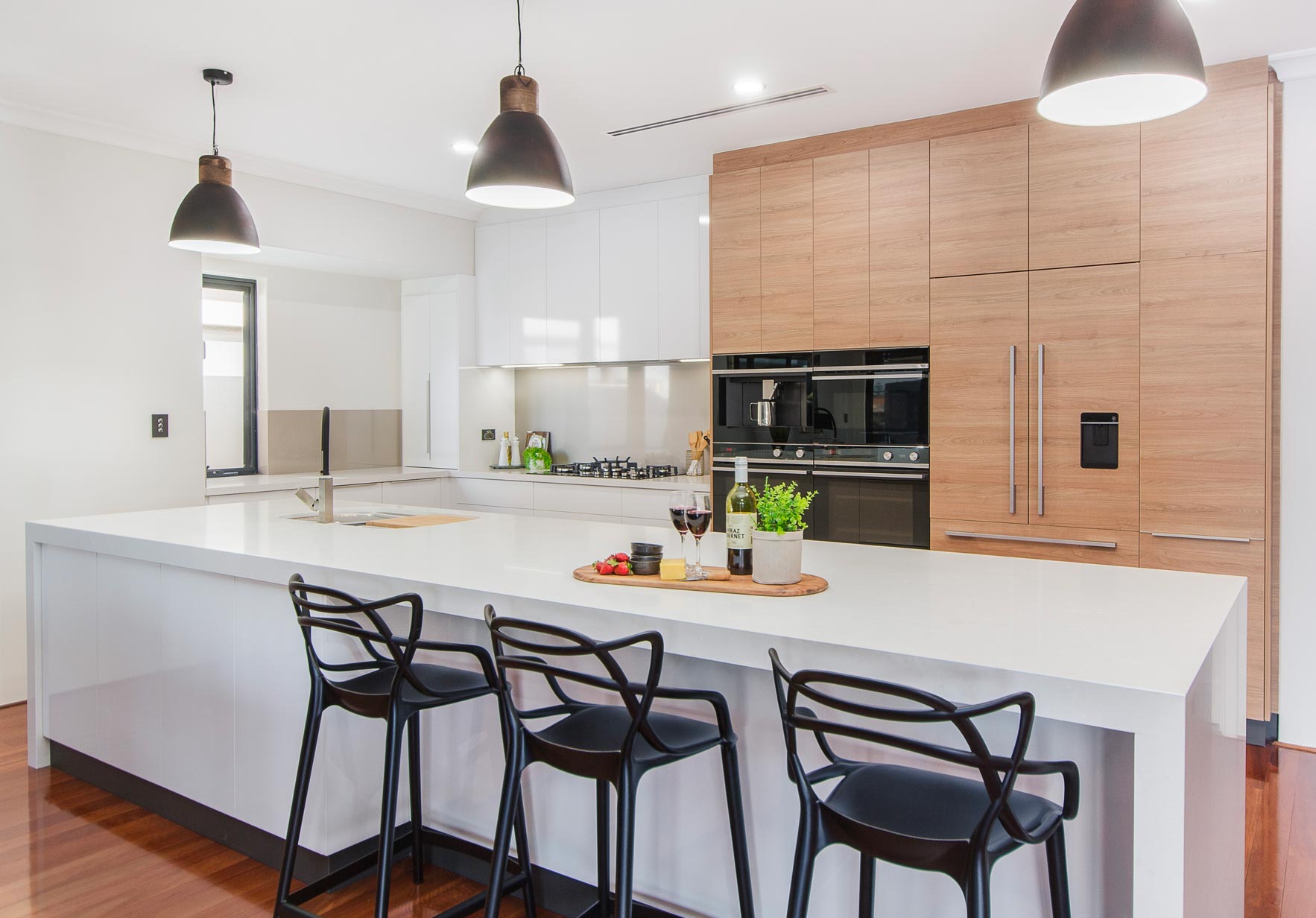In any case, sustainability in the kitchen entails relying on natural materials and minimising synthetic chemicals. The green kitchen trend is not limited to natural and sustainable furnishings; it also includes minor aspects such as everyday utensils and cookware, durable, sustainable, and ethically sourced.
To assist you in becoming more acquainted with the world of sustainable kitchen renovation materials, we’ve answered some basic questions that will get you started on your path to sustainability.
1. What Counts as Sustainable Materials?
You can maximise the use of sustainable materials in your kitchen by building it from scratch. This includes using sustainable materials such as bamboo, reclaimed oak, aluminium for cabinets; cork flooring; and recycled tiles for your backsplash. Using sustainable materials also helps reduce waste.
2. What Are the Best Sustainable Materials to Use for Kitchen Cabinets?
One of the most popular materials for kitchen cabinets is bamboo. Bamboo is an excellent sustainable choice because it is a very fast-growing plant. It can also be planted in poor-quality soil, overgrows, and many culms produced in a single season.
Apart from bamboo, you can also use reclaimed wood for your kitchen cabinets and other wood furniture in your house. Reclaimed wood is an obvious choice for sustainable furniture as it is not a virgin material and is often recycled by being reused in different pieces of furniture. You can ask for creative ideas from your cabinet maker.
3. What Are Eco Lighting Options That You Can Use?
One eco-friendly lighting option for your kitchen is the use of LED lights. LED lights use at least 80 per cent less energy than other lighting sources and last 20 times longer. They are also an excellent choice for your kitchen because they are cool to the touch and have a very long lifespan.
4. What Are Countertop Materials You Could Use in a Sustainable Kitchen?
Bamboo countertops are not only one of the most sustainable countertop materials, but they also come with a wide array of natural colours, making it easy to pick the perfect one for your kitchen.
5. What Are Energy Efficient Kitchen Appliances You Could Use?
Using energy-efficient appliances in your kitchen can significantly reduce your monthly energy bills. A good example is induction cooktops that are far more efficient than regular electric ones. Aside from that, induction cooktops are also much safer than gas cooktops because there is no open flame.
6. What Are the Most Sustainable Kitchen Floor Options?
Most sustainable flooring materials are wood, cork, or bamboo. Wood is one of the most popular materials for flooring in a kitchen because it is easy to work with and easily cleaned and sanitised.
Cork is another good option for sustainable flooring as it is a renewable resource and a natural insulator, making it a great flooring material for kitchens.
Bamboos are also an excellent option for sustainable flooring. It is a fast-growing grass that can be harvested in three to five years. It is also an excellent insulator, making it one of the best choices for flooring your kitchen.
Conclusion
Often, becoming more sustainable only necessitates a rethinking of your current kitchen. The most efficient way to conserve resources is to use what you already have. Reusing kitchen components will save you money and help you reduce your carbon footprint.
Azztek Kitchens specialises in complete kitchen renovations in and around Perth; we don’t just replace doors and countertops; they do the entire thing. We go big in our services for you. If you want to experience the Azztek Kitchens service, contact us today!










